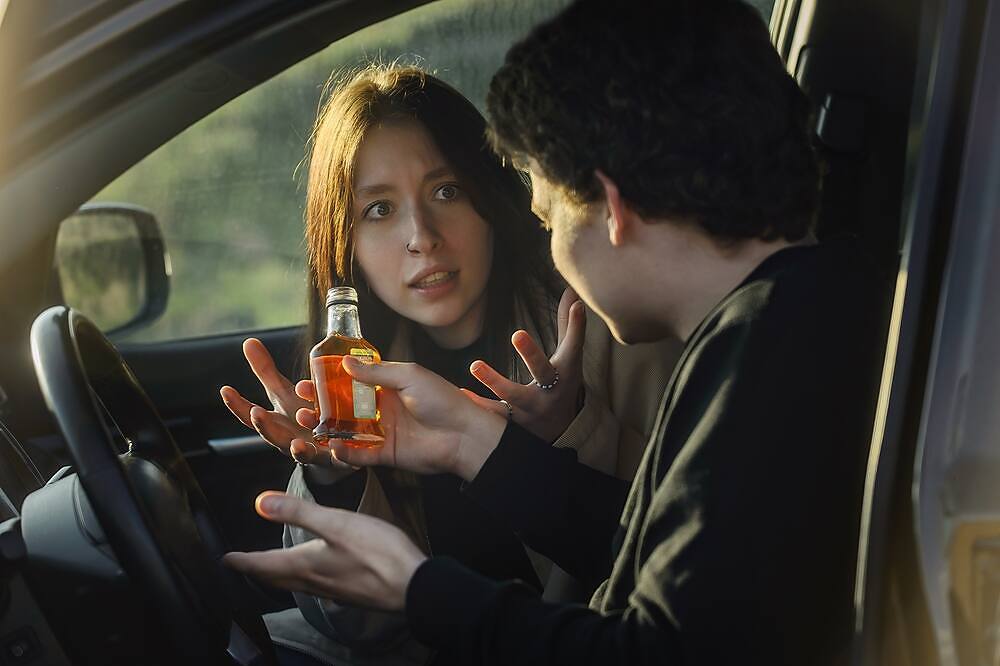
What is Codependency?

Codependency is a dysfunctional relationship in which one person relies heavily on another who is dealing with alcohol addiction.
The co-dependent individual may enable the alcoholic’s behaviour by justifying it, hiding their drinking, or even taking part in or supporting their harmful habits.
This cycle of dependence and enabling can hinder the alcoholic from seeking assistance and prolong their addiction.
Codependency may also lead to emotions of guilt, embarrassment, and a lack of self-worth for the co-dependent person, as they may feel accountable for the alcoholic’s actions and prioritise the alcoholic’s needs above their own.
What are the Signs of Codependency?
Codependency is an unhealthy relationship dynamic in which one individual depends on another for their self-esteem and sense of self. Indications of codependency include:
Struggling to establish boundaries
Codependent People find it challenging to set limits because they are afraid of being rejected or abandoned if they express their desires and requirements. They might have been raised in a dysfunctional household where boundaries were disregarded or ambiguous, causing them to think that they must care for others and their feelings. This cycle of behaviour can result in feelings of remorse and embarrassment when they attempt to speak up for themselves and prioritise their health.
Low self-esteem
Individuals who are codependent often exhibit low self-esteem, which is characterised by a negative self-image and a lack of confidence. They may feel inadequate or unworthy, constantly seeking validation and approval from others to feel a sense of self-worth. This behaviour can create a cycle where they rely on external validation for self-esteem, further reinforcing their negative self-perception.
People-pleasing behaviour
Codependents often tend to prioritise the wants and needs of others, sometimes at the expense of their well-being. They may engage in people-pleasing behaviours to ensure the happiness of those around them, even if it means neglecting their own needs. This behaviour is often rooted in fear of rejection or abandonment, driving codependents to seek validation and acceptance from others to feel valued and loved.
Fear of abandonment
The fear of being abandoned can be rooted in previous instances of neglect, rejection, or abandonment by those who are supposed to provide care and love. Those who are codependent may hold a strong belief that they are not deserving of love and that others must confirm their value. This fear may compel them to hold onto relationships that are damaging or unhealthy, as they believe any relationship is preferable to being alone.
Difficulty expressing emotions
Codependents who struggle with expressing emotions may exhibit various behaviours. They might find it challenging to identify their own emotions, resulting in feelings of uncertainty and detachment from themselves. As a result, they may face obstacles in effectively conveying their wants and needs to others, as they may need a clearer understanding of their emotional state.
Control issues Codependents may struggle with controlling behaviours that can present themselves differently. Some may use guilt, passive-aggression, or manipulation to control others. They may also exert control by excessively planning, organising, or relying on routines. This need for control can manifest in various aspects of their lives.
Feelings of guilt and shame
Codependent Individuals may feel intense guilt and shame, often believing that they hold the responsibility for the happiness and welfare of others.
Identifying signs of co-dependency is crucial for addressing and breaking free from unhealthy relationship dynamics.

How Does Codependency Impact Relationships?
Being in a relationship with someone who is struggling with alcohol addiction can result in a co-dependent dynamic that impacts both individuals significantly. The co-dependent individual may feel a strong urge to support the addict’s behaviour by justifying their actions, hiding their behaviour, or even partaking in their harmful habits. This can create a pattern of enabling that ultimately obstructs the addict’s ability to seek help and overcome their addiction.
Conversely, the person with an addiction may start to rely heavily on the co-dependent partner for emotional backing, validation, and financial stability. This can lead to a detrimental dynamic in the relationship, where the person with an addiction may manipulate or emotionally pressure the co-dependent partner into continuing to support their addiction.
Furthermore, being co-dependent can result in difficulties with communication, issues with trust, and emotional distress within the relationship. The partner who is co-dependent may experience feelings of being overwhelmed, irritated, and harbouring resentment towards the person with an addiction. In contrast, the person with an addiction may feel burdened by guilt, shame, and feeling stuck in their addiction.
In general, co-dependency within a relationship affected by alcohol addiction can significantly impact the mental health, emotional well-being, and overall stability of both individuals involved. Both parties must seek assistance and support, whether through counselling, support groups, or other resources, to break free from the pattern of co-dependency and strive towards healing and recovery.
How Can I Stop Being Codependent?
Dealing with co-dependency is a complicated issue that often stems from deep-seated emotional habits and actions. It can be challenging to escape from co-dependency, but there are measures you can take to initiate the process.
An essential step is to increase your self-awareness and acknowledge how you might participate in co-dependent actions. This may involve assessing your relationships and interactions with others and delving into your own feelings and reasons.
Therapy can be a beneficial resource in tackling co-dependency. A therapist can offer encouragement, direction, and strategies for breaking away from harmful routines. Specifically, cognitive-behavioural therapy can assist you in recognising and challenging detrimental thought processes and actions that contribute to co-dependency.
Establishing boundaries in relationships is essential for overcoming co-dependency. It is crucial to learn how to express your needs confidently, say no when necessary, and prioritise your well-being to create healthier dynamics in your interactions.
Furthermore, it is critical to work on boosting your self-worth and self-esteem. When you recognise your value and have confidence in yourself, you are less likely to seek validation and approval from others in a co-dependent manner.
Ultimately, breaking free from co-dependency is a journey that requires time and dedication. There may be obstacles and setbacks along the way, but with perseverance and support, you can cultivate more balanced and fulfilling relationships, leading to a more satisfying life.
Codependency vs Healthy Dependencies?
Co-dependency and healthy dependencies are about how people establish connections with others.
Co-dependency is when someone excessively depends on another person for emotional or psychological needs, sometimes at the expense of their well-being.
Healthy dependencies involve a balanced and reciprocal exchange of care and support between individuals.
Healthy Relationships
In a healthy relationship, both parties can maintain their independence and unique identities while relying on each other for emotional support, companionship, and collaboration.
Healthy dependencies foster personal growth, self-awareness, and trust, creating a more satisfying and enduring bond between individuals.
The main distinction between co-dependency and healthy dependencies is the amount of self-reliance, self-awareness, and mutual respect within the relationship.

Codependency and Alcoholism
Codependency can be damaging and dysfunctional, whereas healthy dependencies promote a feeling of connection, empowerment, and emotional wellness for everyone involved.
My partner is an alcoholic; how do I help without being a co-dependent?
Supporting a partner struggling with alcoholism can be emotionally challenging. Remember, you can’t control or cure their addiction, but you can offer healthy support.
To avoid becoming co-dependent, set boundaries and prioritise your well-being. Seek therapy, join support groups, and practice self-care.
Avoid enabling behaviours like making excuses or covering up their actions. Instead, encourage them to seek professional help and offer support on their recovery journey. Remember, caring for yourself is essential in supporting your partner through this difficult time.
Effective communication is crucial in this scenario. Share your worries and emotions with your partner in a composed and non-critical way, and promote a candid discussion about their battle with alcoholism.
Keep in mind that your partner’s dependency is not your responsibility, and you cannot compel them to transform. Ultimately, they decide to seek assistance and implement the needed adjustments.
Treatment for Alcohol Addiction
If you are struggling with alcohol addiction, it is crucial to seek help promptly.
Detox Plus has a committed team available 24/7 via phone, email, or online chat to assist you in finding the best rehab centres in the UK.
We can help kickstart your journey to recovery and support you in rebuilding your life, including repairing any damaged relationships. Contact us at any time for guidance and support.
Call us now at 02072052734 to begin your treatment.

